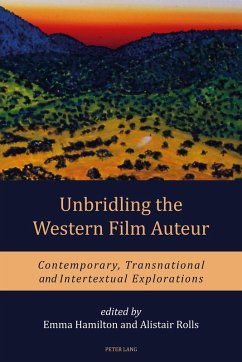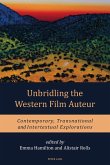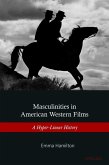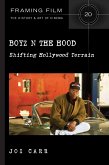According to Jim Kitses (1969), the Western originally offered American directors a rich canvas to express a singular authorial vision of the American past and its significance. The Western's recognizable conventions and symbols, rich filmic heritage, and connections to pulp fiction created a widely spoken «language» for self-expression and supplemented each filmmaker's power to express their vision of American society. This volume seeks to re-examine the significance of auteur theory for the Western by analysing the auteur director «unbridled» by traditional definitions or national contexts.
This book renders a complex portrait of the Western auteur by considering the genre in a transnational context. It proposes that narrow views of auteurism should be reconsidered in favour of broader definitions that see meaning created, both intentionally and unintentionally, by a director; by other artistic contributors, including actors and the audience; or through the intersection with other theoretical concepts such as re-allegorization. In so doing, it illuminates the Western as a vehicle for expressing complex ideas of national and transnational identity.
This book renders a complex portrait of the Western auteur by considering the genre in a transnational context. It proposes that narrow views of auteurism should be reconsidered in favour of broader definitions that see meaning created, both intentionally and unintentionally, by a director; by other artistic contributors, including actors and the audience; or through the intersection with other theoretical concepts such as re-allegorization. In so doing, it illuminates the Western as a vehicle for expressing complex ideas of national and transnational identity.
Dieser Download kann aus rechtlichen Gründen nur mit Rechnungsadresse in A, D ausgeliefert werden.









